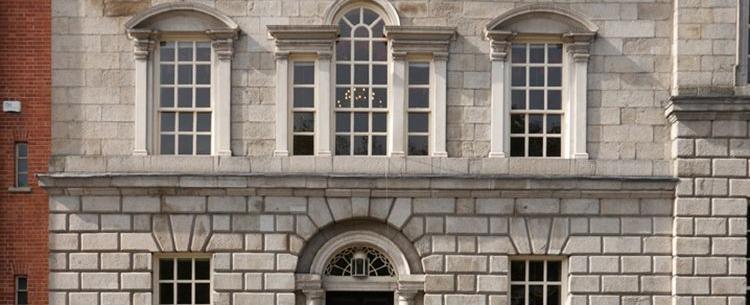Newman's Campaign in Ireland: A Review of Paul Shrimpton's New Edition (part II)

My Campaign in Ireland Part II: My Connection with the Catholic University. BY JOHN HENRY NEWMAN. INTRODUCTION AND NOTES BY PAUL SHRIMPTON. Newman Millennium Edition Volume XVII. Leominster: Gracewing, 2022. cxv + 544 pages. Hardback: £35hb. ISBN: 9780852449660.
In 2021, the Fathers of the Birmingham Oratory and Gracewing Press published My Campaign in Ireland Part I: Catholic University Reports and Other Papers and released the companion volume My Campaign in Ireland Part II: My Connection with the Catholic University (hereafter referred to as Part I and Part II respectively) in March 2022. Paul Shrimpton, a British educational historian, Newman scholar, and the editor of both volumes, sums up the difference between the two volumes as follows: Part I presents “the public face of Newman’s educational endeavour,” while Part II provides “the behind-the-scenes picture by telling the reality of Newman’s experience in Ireland” (xv).
As noted in our previous review for the Newman Review, Part I consists of a wide range of official documents, reports, correspondences, discourses, abstracts, and other documents relating to the founding and operation of the Catholic University of Ireland (hereafter CUI) from 1851–1858. Part I was printed privately and distributed by William Neville, Newman’s former secretary and literary executor, in 1896 because Newman thought “there was nothing compromising in them to anyone.”[1] Part II, on the other hand, contains much more personal and sensitive material that Newman did not intend for publication—namely, both the draft and final version of “Memorandum About my Campaign with the Catholic University” and over two thousand extracts from correspondences relating to the successes and failures of Newman’s efforts while engaged as CUI’s founding rector.
Although the central focus of Part II is neither to provide readers with a traditional scholarly argument nor to present them with a text wholly composed of never-before-seen material, it still contributes to Newman scholarship in significant ways. Of primary importance is the inclusion of both the published version of the “Memorandum About my Campaign with the Catholic University” as well as wording and sections Newman chose to delete from the original unpublished draft of the same document. Although the Memorandum constitutes a very small fraction of Newman’s writings on education (122 pages in the Millennium Edition), it is the flashpoint for much of the scholarship relating to the Newman-Paul Cullen debate over CUI’s obstacles and its ultimate failure. For the first time, readers have access to the four sections deleted from the initial draft of the Memorandum that include very personal reflections on the delays encountered, opportunities missed, mistakes made, and excuses fabricated. These sections, seen in light of the final document, starkly illustrate not only Newman’s frustrations in appointing staff and his comprehension that the CUI never truly had any chance for success, but also his desire to avoid publishing material that would do serious harm to the other’s reputation.
The value of this historical material is further clarified by the scope and sequence of Shrimpton’s comprehensive introduction, which provides insight not merely into the personalities and expectations of those responsible for the CUI’s founding, but also into the political and cultural obstacles that Newman, Cullen, and others faced during Newman’s time in Ireland. In particular, Shrimpton lays out clearly the dearth of Irish students prepared for university study, a national clergy who little understood what university level education involved, and a church hierarchy who saw CUI as a mere component of Irish independence. Scholars of educators interested in Newman will find especially interesting Shrimpton’s brutally frank assessment of the shortcomings in historical scholarship during the past century, as writers attempted to identify and assess the causes for the Newman-Cullen conflicts and to assign responsibility for what occurred and failed to occur at the CUI during Newman’s tenure as rector (lxxxiii–xcvi).
Because Part II is a critical edition of the Memorandum, one naturally expects that work itself and the insight it provides into Newman’s assessment of his time at the CUI to constitute the book’s value. However, to focus exclusively on the historical value of Part II is to overlook the unique glimpses that the almost four hundred pages of extracts from correspondences provide into Newman the person. First is the importance that Newman placed on his responsibilities to the Birmingham Oratory—what he referred to as his duty to St. Philip Neri. The Oratory was still in its formative period in the 1850s, and Newman, as the guide of that Oratory, was away in another country for extended periods of time. Thus, he suffered as he heard of indecision, poor judgment, infighting, and sickness among the members of the Oratory mostly due to overwork. This was especially painful because Newman feared the oratory was failing in the primary way that makes oratories unique among religious communities: its members are bound together by fraternal charity, not vows.
Second is Newman’s continued disappointment at the failure of the Irish clergy, including the episcopy, to grasp the role and function of a university. At times, Newman referred to this as a failure to appreciate the importance of “literature and science” (e.g., 461) in the intellectual preparation of those destined for life in the world. Irish clergy, like most clergy in the mid-nineteenth century, were only familiar with the limited subject selection, lecture-based pedagogical approach, and strict disciplinary practices of seminary education. Although many in the Irish clerical hierarchy had some familiarity with Newman’s ideas on university education, they were unable to rid themselves of the blinders of their own seminary training. Thus, they were incapable of grasping the full richness of what a university education offered, a fact which prompted Newman to comment on his reply to layman John O’Hagan of 9 October 1856: “It was not Ireland that was unkind to me. The same would have happened in England or France. It was the clergy, moved as they are in automation fashion from the camarilla at Rome” (260).
Third is the importance Newman placed on university study as a lived experience. In his correspondences concerning CUI, Newman repeatedly emphasized the need for the founding rector to select the members of his university team. Dr. Matthew Kelly, one of the various vice rectors selected by the Irish primates, wrote to Newman on 7 October 1858: “You will not it is true have left us without a guide, so long as we have your publications on University Education” (393). Unfortunately, Newman knew all too well from his years as a tutor at Oxford that without a carefully and patiently constructed school culture, structures like university constitutions, regulations, public lectures, renowned faculty, and magnificent buildings could never serve as the foundation for a thriving university community. What CUI needed for success was a small group of faculty members who not only understood Newman’s vision, but could serve as living examples of his ideas in their daily contacts with students and the Irish public. Newman knew those living examples would best come from British and Scottish converts to Catholicism, a situation that many of the Irish primates found repulsive. By living Newman’s vision, the faculty would slowly introduce students to a culture of learning based on disciplining the mind. Once the university culture governed the daily life at the university, that culture would be passed on to future generations of faculty, staff, and students long after Newman was gone.[2]
For Newman scholars interested in education, Shrimpton’s introduction coupled Newman’s omissions from the final draft of his Irish Campaign memorandum make Part II an essential addition to their libraries. For those simply seeking insight into Newman the person during his years in Ireland, the correspondences assembled in the extract are worth reviewing because they provide readers with an uninterrupted flow of ideas and experiences that it is impossible to get from study of the multiple volumes of Newman’s Letters and Diaries.
Forthcoming volumes in this series include:
Vol XVIII Difficulties of Anglicans Vol II -- Introduction and notes by James Tolhurst
Vol XIX Lectures on the Doctrine of Justification -- Introduction, notes and textual appendix by James Pereiro
Vol XX The Via Media Vol I -- Introduction and notes by James Tolhurst
In Preparation
Vol XXI Callista -- Introduction, notes and textual appendix by Kathleen Dietz, FSO
Vol XXII The Via Media Vol II -- Introduction, notes and textual appendix by Andrew Starkie
Vol XXIII Sermons Bearing on the Subjects of the Day -- Introduction and notes by James Tolhurst
[1] Newman, My Campaign in Ireland Part I: Catholic University Reports and other Paper, ed. William Neville with Introduction and Notes by Paul Shrimpton (Leominster: Gracewing, Newman Millennium Edition, Volume XVI, 2021), 38.
[2] To better understand Newman’s thoughts on school culture, see Newman’s exchange of correspondence with Oriel Provost Edward Hawkins in 1830 (LD ii, 202–43) and Newman’s work in establishing the Oratory School at Edgbaston in 1857–1858, which included shared values and expectations, active parental involvement, financial commitments by parents, trust in Newman’s faculty and staff appointments, and shared parental/Oratorian control of the school. See Paul Shrimpton, A Catholic Eton? Newman’s Oratory School (Leominster: Gracewing, 2005) esp. chapter 2.
Share
Vincent and Rebecca Vaccaro
Vincent Vaccaro is a retired civil servant with over forty years of Federal service. For almost three decades, he annually taught a graduate seminar in the philosophy of education for the University of Virginia's Curry School of Education (Northern Virginia Center). Rebecca Vaccaro teaches British and American Literature to high school students in Alexandria, VA. Her specialization is Victorian literature with an emphasis in children's and young adult literature. The Vaccaros are currently working on an article on Newman and creating school culture and a book on Newman's lessons for teachers.
Topics
Newsletter
QUICK LINKS

